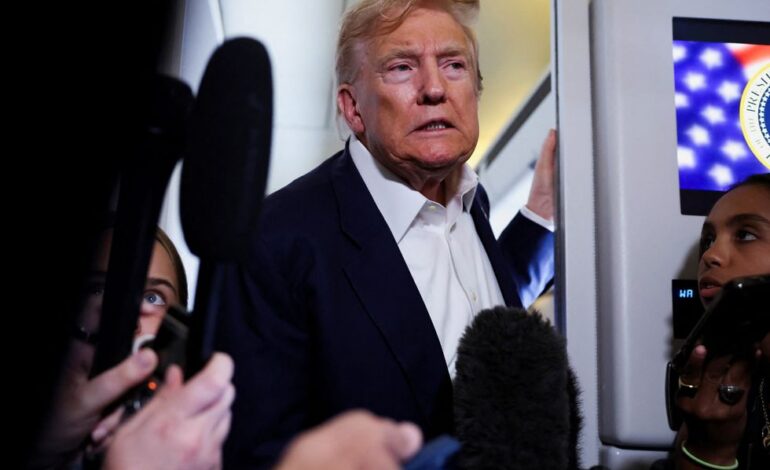Psychologist Critiques Trump’s “Piggy” Remark as Disturbing Behavior

Psychologist Alex Iszatt has raised concerns over a recent comment made by Donald Trump, calling it a manifestation of a deeply troubling personality trait. During an encounter with a Bloomberg News reporter aboard Air Force One, Trump responded to questions regarding his ties to Jeffrey Epstein with the remark, “Quiet! Quiet, piggy.” This incident has drawn widespread criticism, with Iszatt suggesting it reflects a broader, emotionally unstable strategy often employed by the president.
Iszatt, in an interview with The Mirror, noted that while Trump may not have a full-blown narcissistic personality disorder, he exhibits significant grandiose and narcissistic traits. The psychologist explained that Trump’s attitudes towards women stem from an outdated hierarchical mindset. “He grew up in an elite bubble that fostered this mentality,” Iszatt stated, adding that Trump has thrived in environments where aggression and spectacle are rewarded.
Continuing her analysis, Iszatt described Trump as “emotionally unstable,” arguing that his behavior has been reinforced over decades. She emphasized that both genetics and upbringing have shaped his character, which she characterized as egocentric and low in empathy. “Humiliation is a tool he uses like a playground bully to get his own way,” Iszatt asserted, indicating that Trump’s reactions often lack maturity and reflect a troubling inability to empathize with others.
“I don’t think he is mentally ill,” Iszatt concluded, “he is cunning, and breaking norms isn’t a loss of control; it is part of his strategy.” This perspective suggests a deliberate approach to communication, where insults may serve specific purposes in Trump’s broader political tactics.
Body language expert Judi James further analyzed Trump’s “piggy” comment, suggesting it fits within a pattern of visual language he often employs. According to James, Trump’s insults and compliments are often visually prompted, with “beautiful” being a frequently used term of praise. “It suggests a trait of predominantly visual stimulation,” she noted, which may explain his penchant for showcasing his lavish decorating choices in the White House.
James highlighted that Trump’s choice of vocabulary reflects a visual approach to both praise and insult. The use of a term like “piggy” not only serves as an insult but also aligns with his tendency to express opinions through vivid imagery, whether in positive or negative contexts.
The commentary from both experts underscores the potential implications of Trump’s communication style on public perception and political discourse. As the president continues to navigate complex issues, his choice of language and the underlying personality traits may shape the narrative surrounding his administration.
This incident serves as a reminder of the ongoing scrutiny of Trump’s behavior, as both supporters and critics seek to understand the implications of his remarks.






